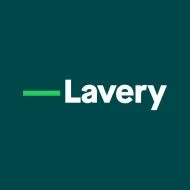The claims of the BSA | the Software Alliance (the "BSA") against Quebec and Canadian businesses seem to be increasingly frequent.
The BSA is a U.S.-based non-profit organization operating in more than 80 countries. Its members include companies such as Adobe, Apple, IBM and Microsoft.
According to the information it publishes on its website, the BSA particularly fights copyright infringement when software has been installed by users without acquiring the necessary licence. It would appear that most investigations of the BSA target businesses and are conducted further to calls on its anti-piracy line or anonymous reporting via its website. Most reports come from current or former employees. In principle, after receiving information alleging software infringement, the BSA contacts the business to investigate the matter further and invites it to negotiate a settlement where it concludes that there is actual infringement. If a settlement cannot be reached, the BSA assigns the file to its attorneys and ultimately, if they cannot negotiate a settlement, the case goes to court.
In Quebec and elsewhere in Canada, the BSA bases its claims for use of software without a licence on the provisions of the Copyright Act.1 this Act particularly provides that "When a person infringes copyright, the person is liable to pay such damages to the owner of the copyright as the owner has suffered due to the infringement and, in addition to those damages, such part of the profits that the infringer has made from the infringement and that were not taken into account in calculating the damages as the court considers just."2
In addition, since the Act to amend the Copyright Act,3 assented to on June 29, 2012, came into force, the holder of the infringed copyright may elect to claim, instead of damages and profits made by the person who infringed the copyright in question, an award of statutory damages which are not less than $500 and not more than $20,000 per violation if the infringements are for commercial purposes and not less than $100 and not more than $5,000 in the case of violations for non-commercial purposes.4
Therefore, since 2012, a business which uses software without having acquired the required licences is liable to a claim of not less than $500 and not more than $20,000 per licence which it failed to acquire.
In the case of Adobe Systems Incorporated et al. c. Thompson (Appletree Solutions),5 the Federal Court was called upon to apply this new provision of the Copyright Act. the Court noted that in awarding statutory damages, the following must be taken into account: (1) the good or bad faith of defendant, (2) the conduct of the parties before and during the proceedings; and (3) the need to deter other infringements of the copyright in question.
Having concluded that proof had been made of the intention of the defendant to infringe and that severe deterrent measures were warranted, the Federal Court issued an injunctive order to prevent defendant from continuing to violate copyrights. On the issue of damages, the Court declared:
" I find no reason not to award maximum statutory damages in the amount of $340,000, being $20,000 per work infringed for each of the three Plaintiffs."
Proof the (1) the good or bad faith of defendant, (2) the conduct of the parties before and during the proceedings; and (3) the need to deter other infringements of the copyright in question being easier to make than that of the damages, it is anticipated that the BSA and its members will not hesitate in invoking the statutory damages provided for in this new provision of the Act in support of their claims.
As these statutory damages can be well beyond the value of each non-acquired licence, it goes without saying that a negotiated settlement of the claim will constitute a preferred approach.
The BSA usually publishes on its website the settlement agreements entered into with businesses.
However, nothing prevents the parties from agreeing that the settlement of the claim and the settlement terms will be kept confidential, which will avoid he business concerned having its name associated with the settlement of a BSA claim.
Footnotes
1 R.S.C. (1895) c. C-42.
2 Ibid., sec. 35.
3 S.C. 2012, ch. 20.
4 Ibid., sec. 38.1.
5 2012 CF 1219 (CanLII).
The content of this article is intended to provide a general guide to the subject matter. Specialist advice should be sought about your specific circumstances.


